To keep up with our fast-moving world of electric vehicle popularity and adoption, the auto industry needs to change how it markets its products to attract the attention of people who are excited about electric mobility. At Electrify Expo Industry Day in Austin, TX, experts discussed the challenges of explaining how electricity can be used as a fuel, especially in electric cars. Adam Weissman from Anker, Matt Teske from Chargeway, and BJ Birtwell from Electrify Expo talk about how people often get confused by terms like “kilowatt hours” and “kilowatts.” They suggest that making things simpler and using new electric vehicle marketing strategies can help. They also predict that talking about electric mobility will become even more important in the future.
The Challenges of Electric Communication in Electric Vehicle Marketing Strategies
Kathryn Lundstrom, the Sustainability Editor at Adweek, kicks off the discussion at the Electrify Expo Industry Day in Austin, TX. She’s got a tough nut to crack – how to talk to folks about using electricity as fuel, especially in the realm of EVs.
ADVERTISEMENT
Kathryn understands that this dialogue is different from your typical car sales pitch. There’s a gap between what consumers know and what they need to know about transitioning to EVs.
Adam Weissman’s Take on Confusion
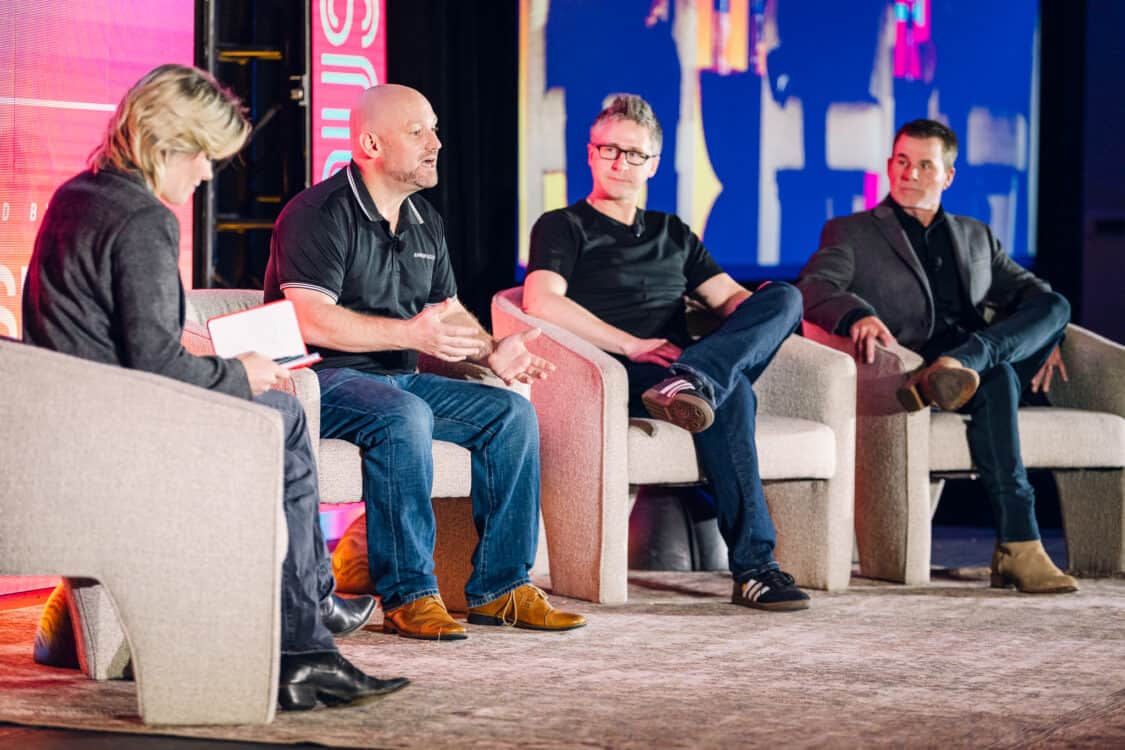
Adam Weissman, Senior PR Manager at Anker, points out something we’ve all felt – confusion. Consumers are puzzled about using electricity as a fuel, especially when it comes to portable power solutions. “They’re just confused about ‘What do I need?'”, Adam mentions. “They just don’t seem to understand the differences between kilowatt-hours, kilowatts, and their uses.” The problem is that people can’t differentiate between kilowatt hours and kilowatts.
Kathryn chimes in, suggesting that educating consumers through electric vehicle marketing strategies might be the key.
Matt Teske on the Challenge
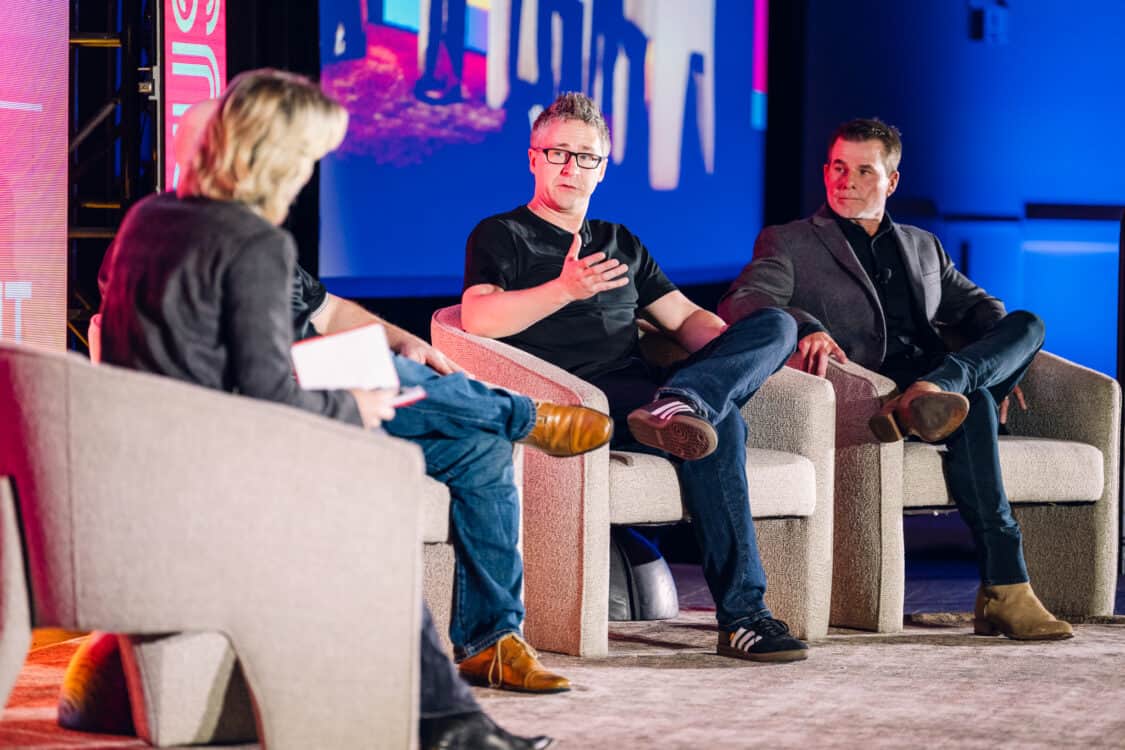
Matt Teske, CEO of Chargeway, jumps into the discussion. He points out that using electricity as a new fuel source, especially in EVs, is mind-boggling for many. Unlike traditional gas, where you pick ‘regular’ or ‘premium,’ electricity brings a new level of complexity. “I think, at the end of the day, the biggest challenge we have is this: there is a new fuel type, and here’s how you use it,” Matt continues, “translating the complexities into something simple.” Matt’s got a plan, though. He wants to simplify the complexities, make it visual, and turn the learning curve into a smooth ride.
BJ Birtwell and the Need for a Common Language
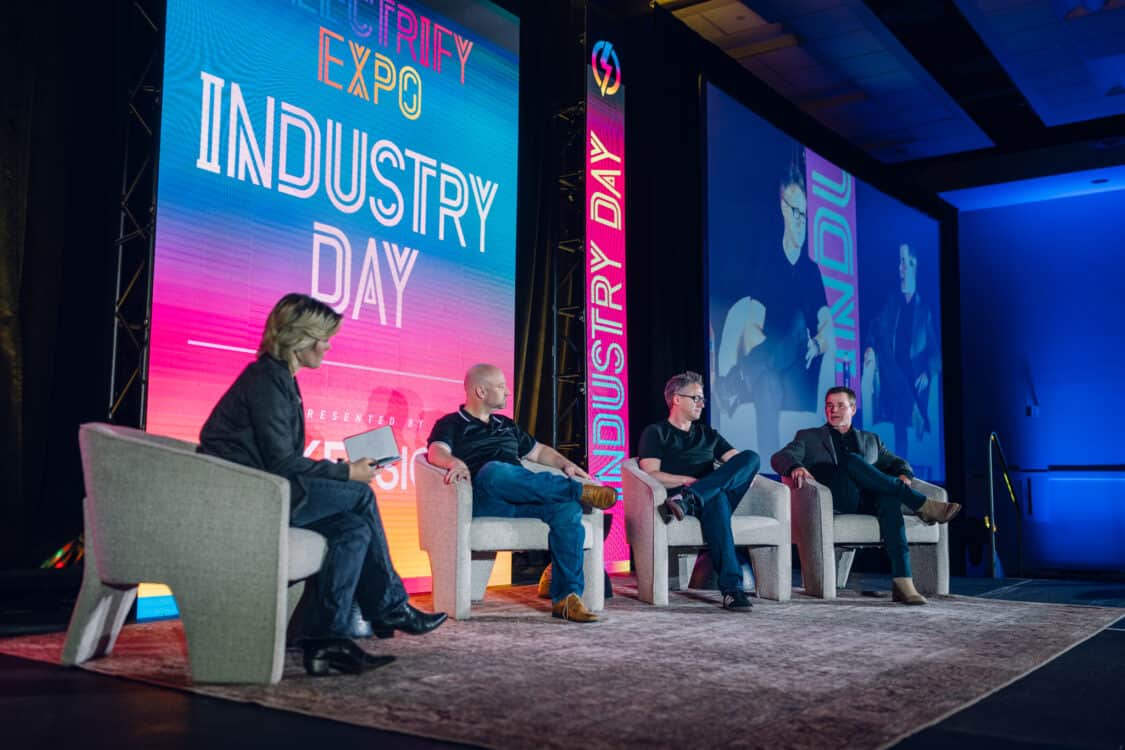
BJ Birtwell, CEO of Electrify Expo, steps in. He used to be an EV skeptic, but he’s seen the light (pun intended). The challenge now is making everyone speak the same language. “I think that we just all need to agree on a language of what that’s going to be,” BJ states. With mainstream Americans hopping on the EV train, they’re all ears but not on the same wavelength.
BJ’s verdict: We need a common language, a lingo everyone understands.
ADVERTISEMENT
Kathryn and the Dealership Dilemma
Kathryn brings up a Washington Post story about dealerships’ frustrations and consumers’ confusion when buying and selling EVs. Dealerships are losing their cool because the EV buying process is eating into their profits. Meanwhile, consumers are scratching their heads, requiring multiple trips and asking tons of questions.
Kathryn’s take? If consumers get how the EV purchase process works, everyone wins.
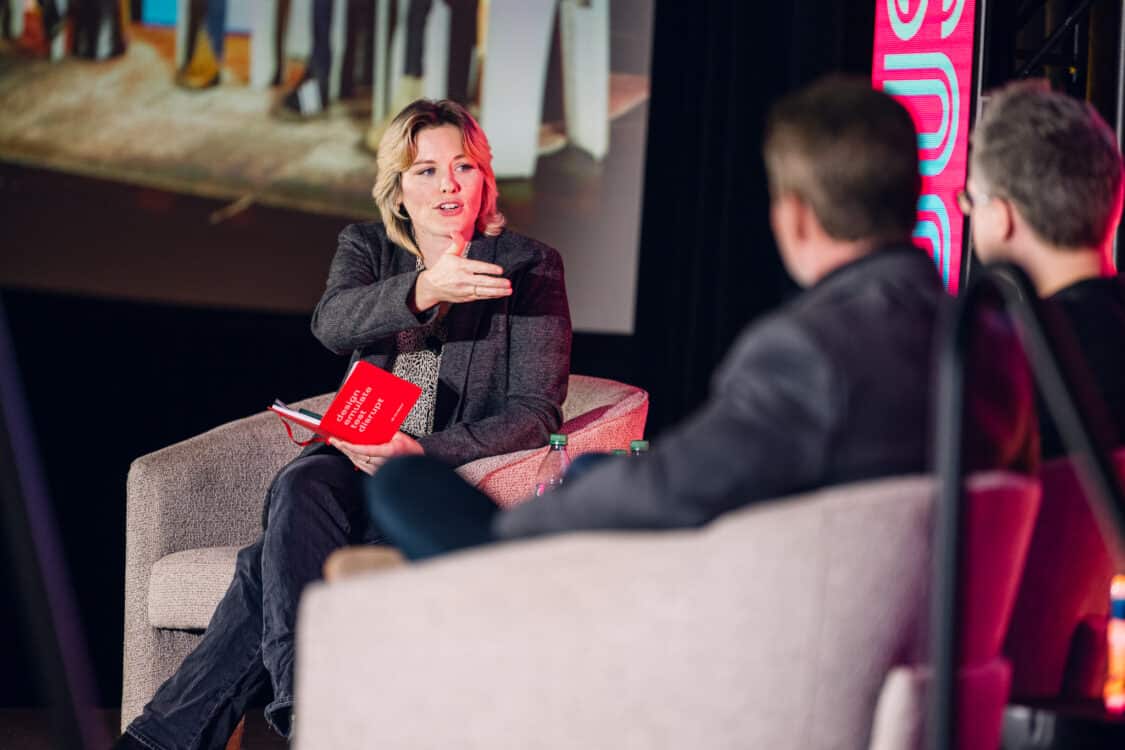
Adam Weissman Talks Power
Adam makes an important point: consumers should understand the electricity they use for their cars and homes. He believes that helping them comprehend what powers their cars and how it works will lead to a desire for more knowledge. They should also understand what they can charge and how long it takes, especially if they’re used to the quick gasoline refueling routine.
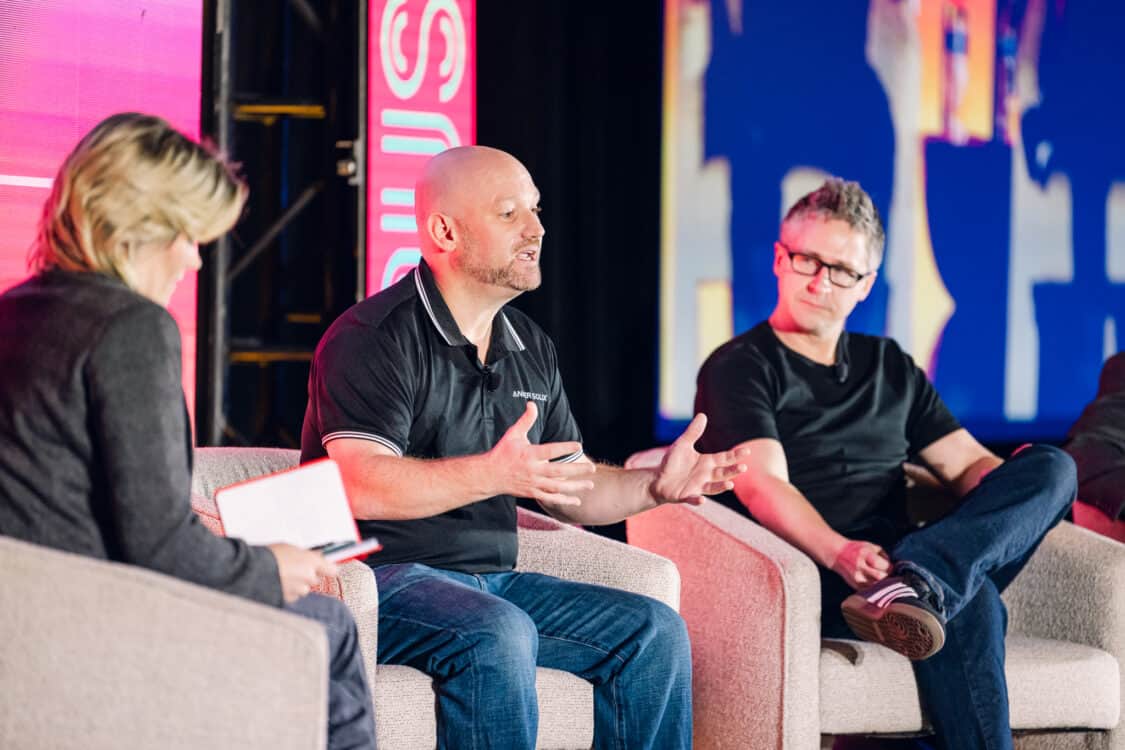
Matt Teske’s Innovative Approach to Electric Vehicle Marketing Strategies
Kathryn nudges Matt to spill the beans on Chargeway’s secret sauce. Matt wants to change the way people think about EV charging. No more quick pit stops at the gas station; now, it’s all about charging during those long hours when your car is napping in the garage.
Matt’s got a plan – it’s about personalization, not a textbook lesson. He wants to invite people into the EV ownership experience, based on their ride and lifestyle. It’s about making it all feel easy, not overwhelming.
ADVERTISEMENT
Matt’s strategy: “How do we invite people into those ownership experiences based on the car they select and understanding their lifestyle and then translate that experience into something that’s visualized a way that they can navigate those options without feeling overwhelmed, and that’s effectively the strategy we have with our software at Chargeway.”
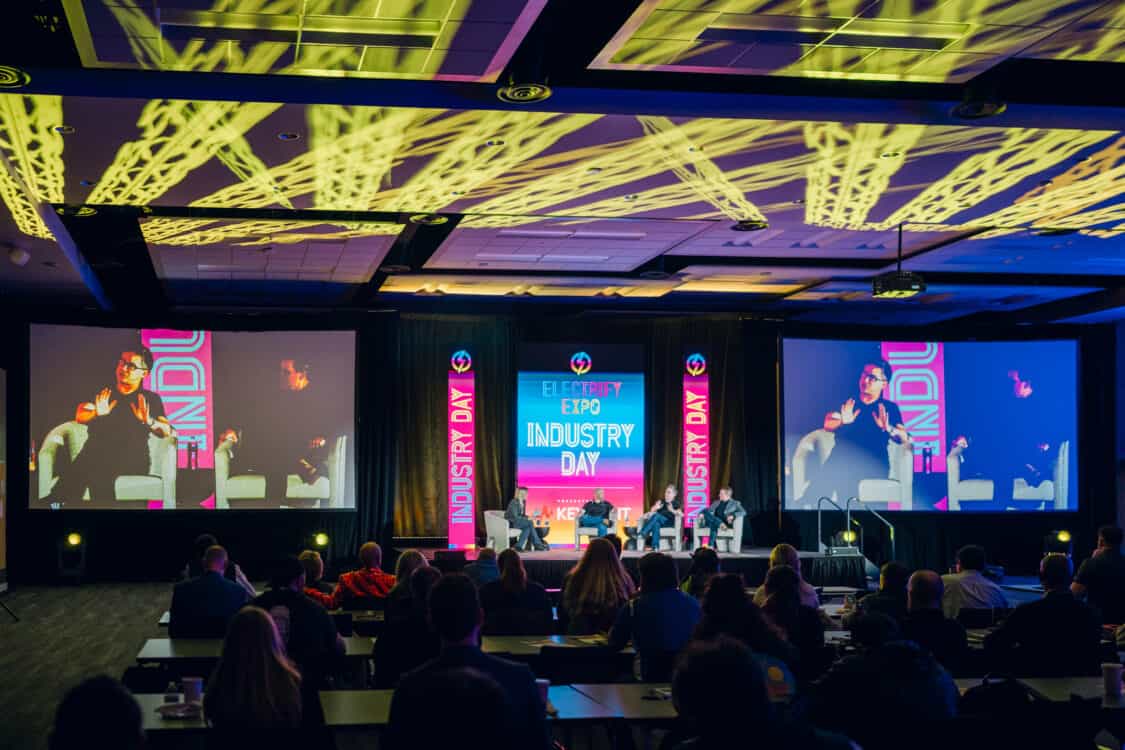
BJ Birtwell on the Road Ahead
Kathryn asks BJ about the future of EVs and electricity as a fuel in 2024. BJ envisions some competition in the near future. People at Electrify Expo are showing interest in electric vehicles, but the challenge now is helping them decide between plug-in hybrids and fully electric cars. Another concern is how EVs perform on long road trips. His vision is to establish a common language that everyone can understand.
BJ’s prediction is, “So, we need to figure out what this common language will be and guide people in a way that’s easy for them to understand. We shouldn’t overwhelm them with technical terms like ohms, amperage, and kilowatts per hour; we need to move away from that completely.”
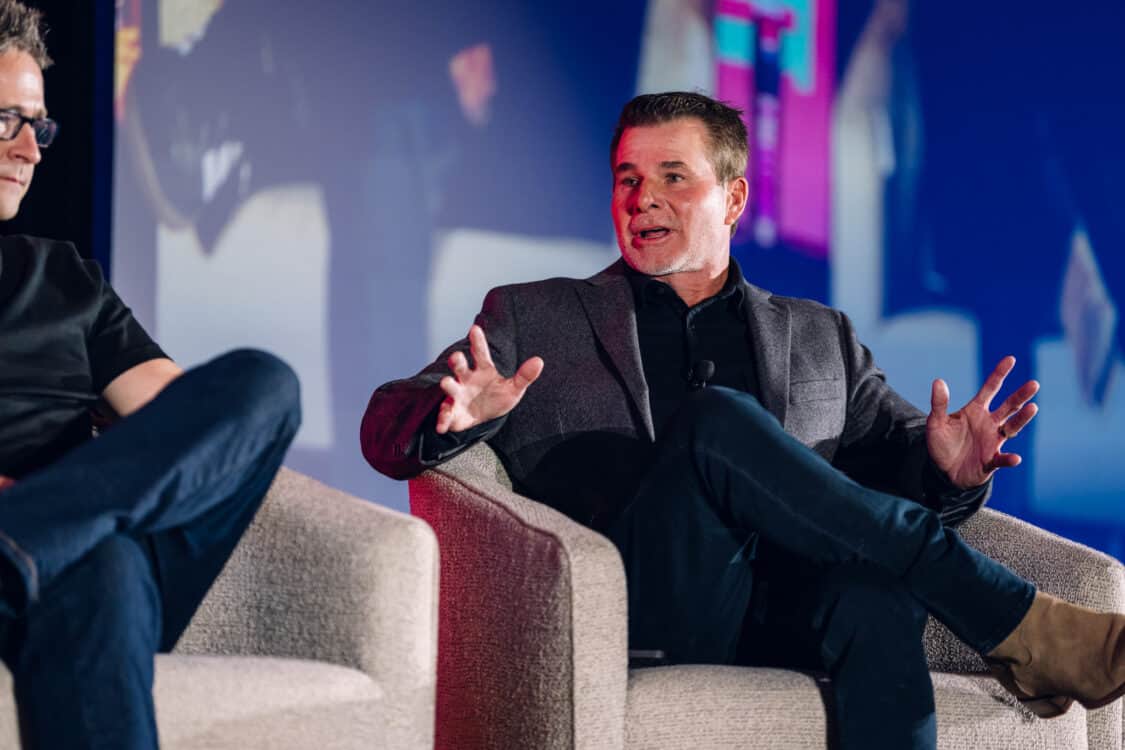
Kathryn’s Final Thoughts on Electric Vehicle Marketing Strategies
Kathryn wraps up with some food for thought. Maybe it’s time for less glitzy brand marketing and more hands-on, educational marketing. She sees potential, especially for brands that haven’t dived into this pool much.
She turns to Adam, curious about Anker’s role in experiential trade shows and pop-ups, especially in the festival scene.
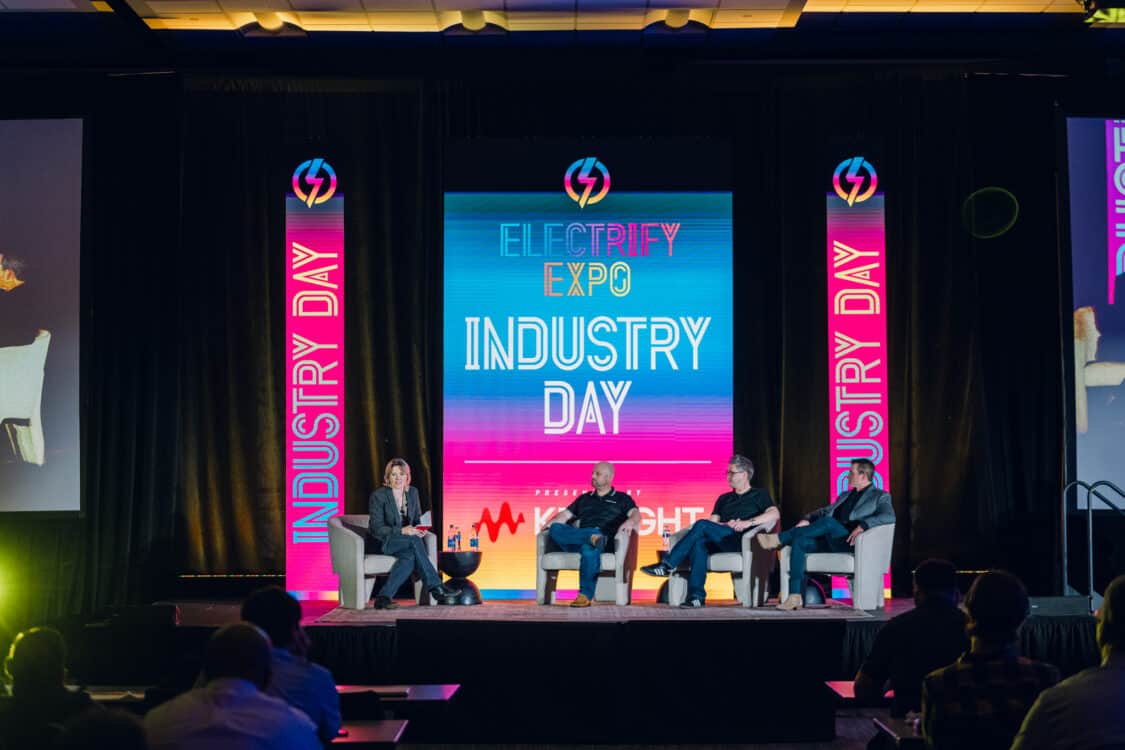
Adam Weissman on the Power of Experiences
Adam discusses the successful collaboration Anker has had with Electrify Expo. People are curious about what Anker’s products can power, from refrigerators to EV chargers. Anker is also venturing into the realm of whole-home vehicle chargers and provides information on their website to simplify the power-related information for consumers.
Adam’s primary objective is to assist consumers in comprehending the devices their products can charge.
In Adam’s own words, he states, “It’s been wonderful to engage with consumers and help them understand how our products can be used for charging purposes… because many people are unaware of the energy requirements for items like refrigerators and televisions.”
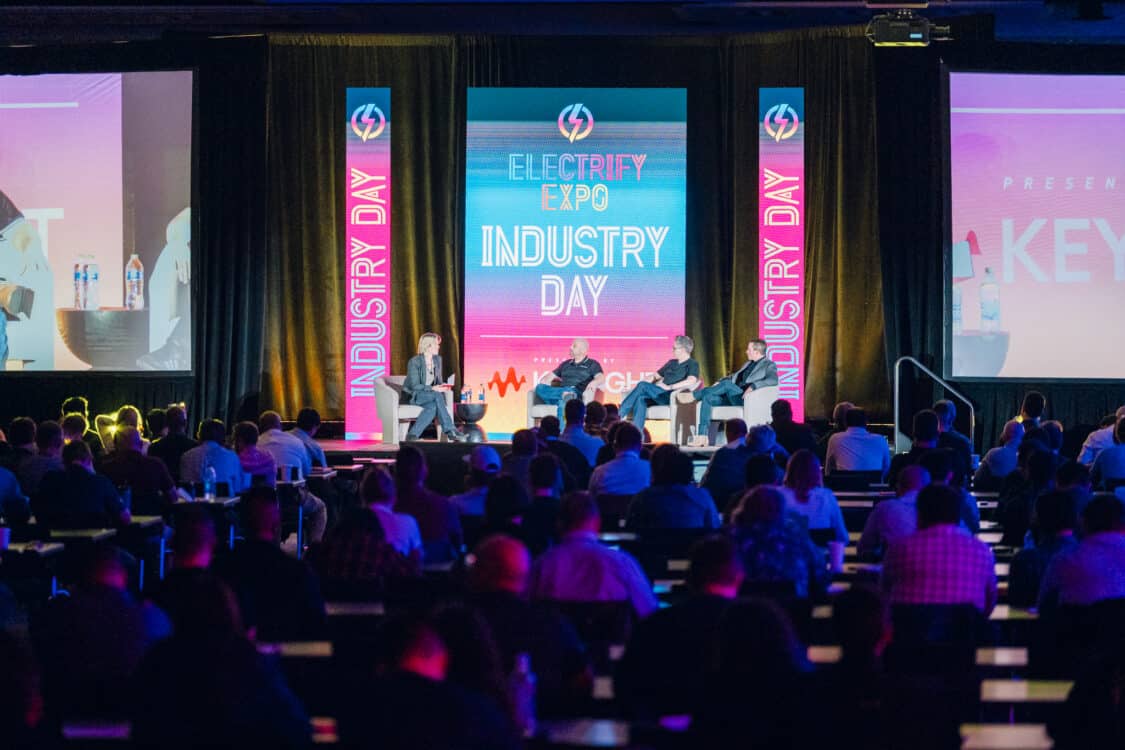
The Future of EVs and Electricity
In the final stretch, Kathryn asks the panel to predict what will define EVs and electricity as a fuel in 2024. Matt keeps it simple – this conversation is going to get louder. “My prediction is this is going to be a conversation we’re going to hear a lot more about.”
ADVERTISEMENT

IMAGES: ELECTRIFY EXPO
FTC: We use income-earning auto affiliate links. Learn more.


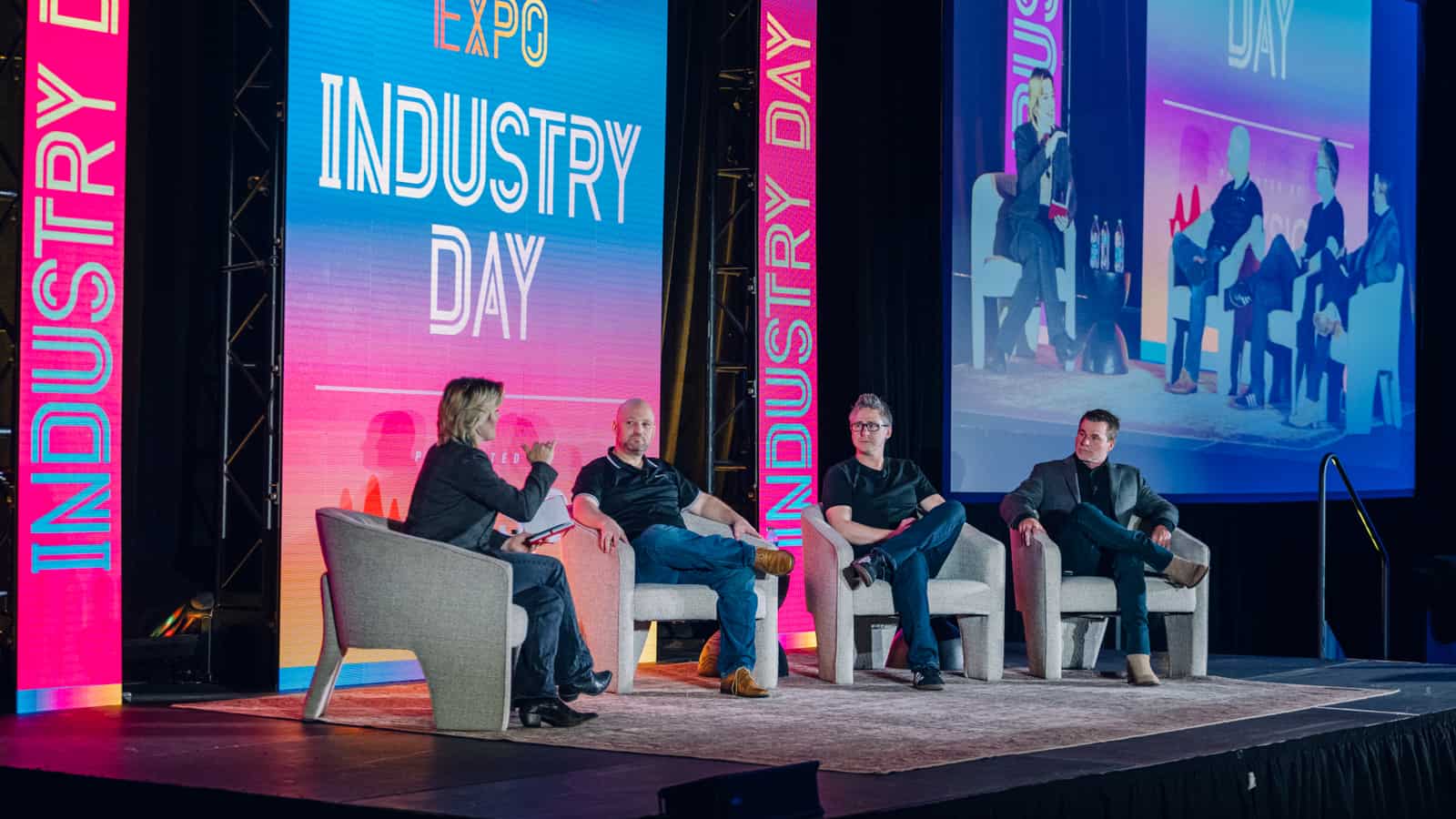


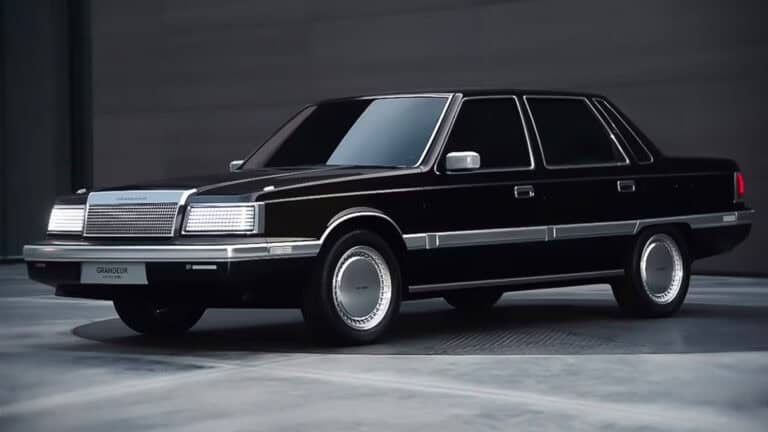

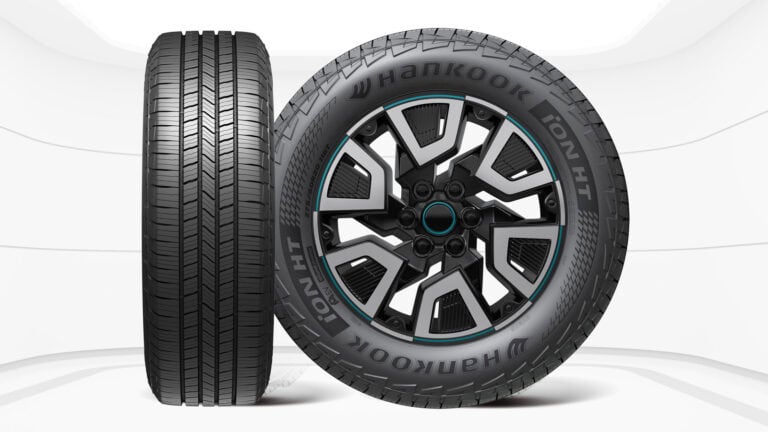
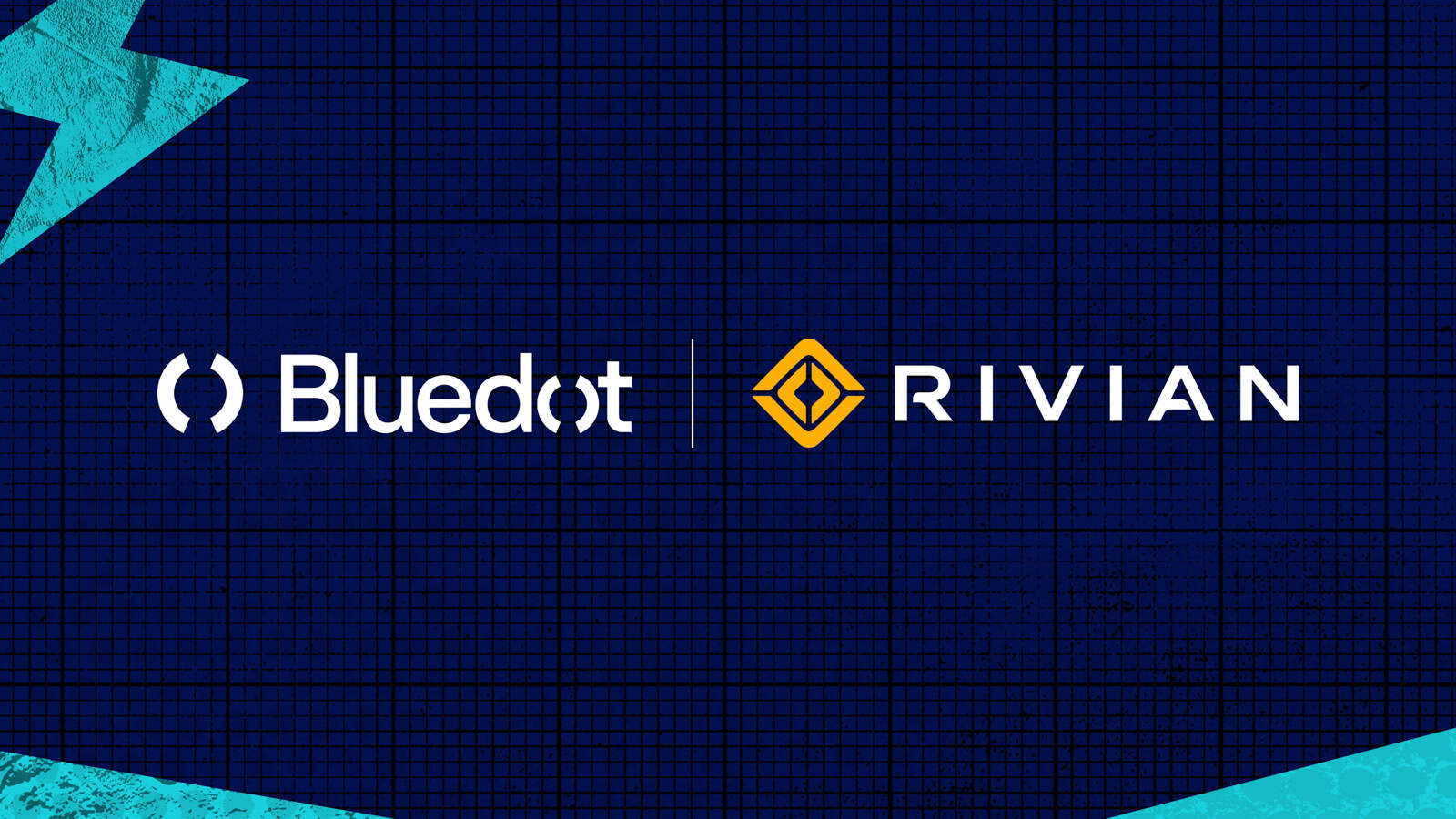
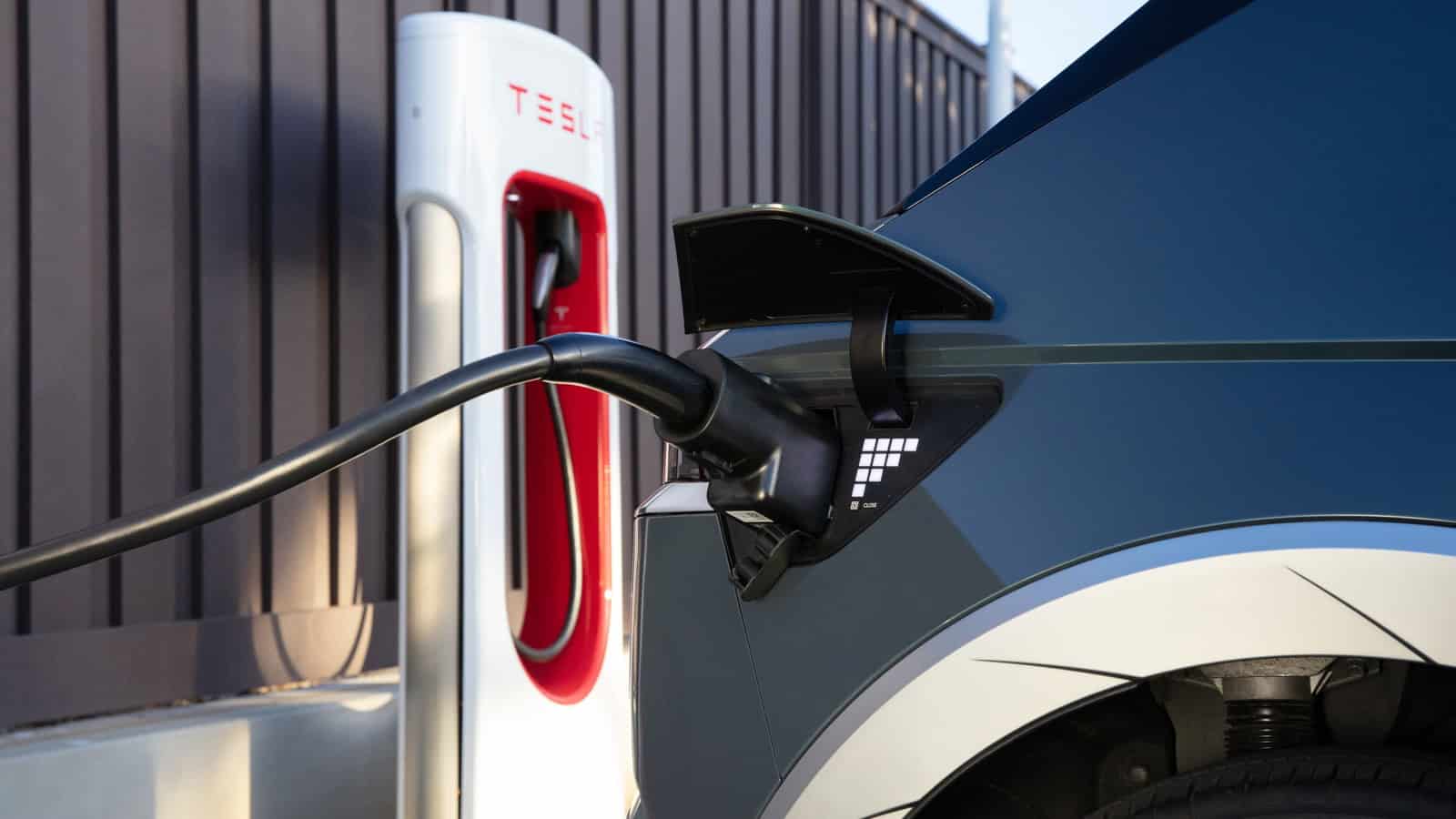
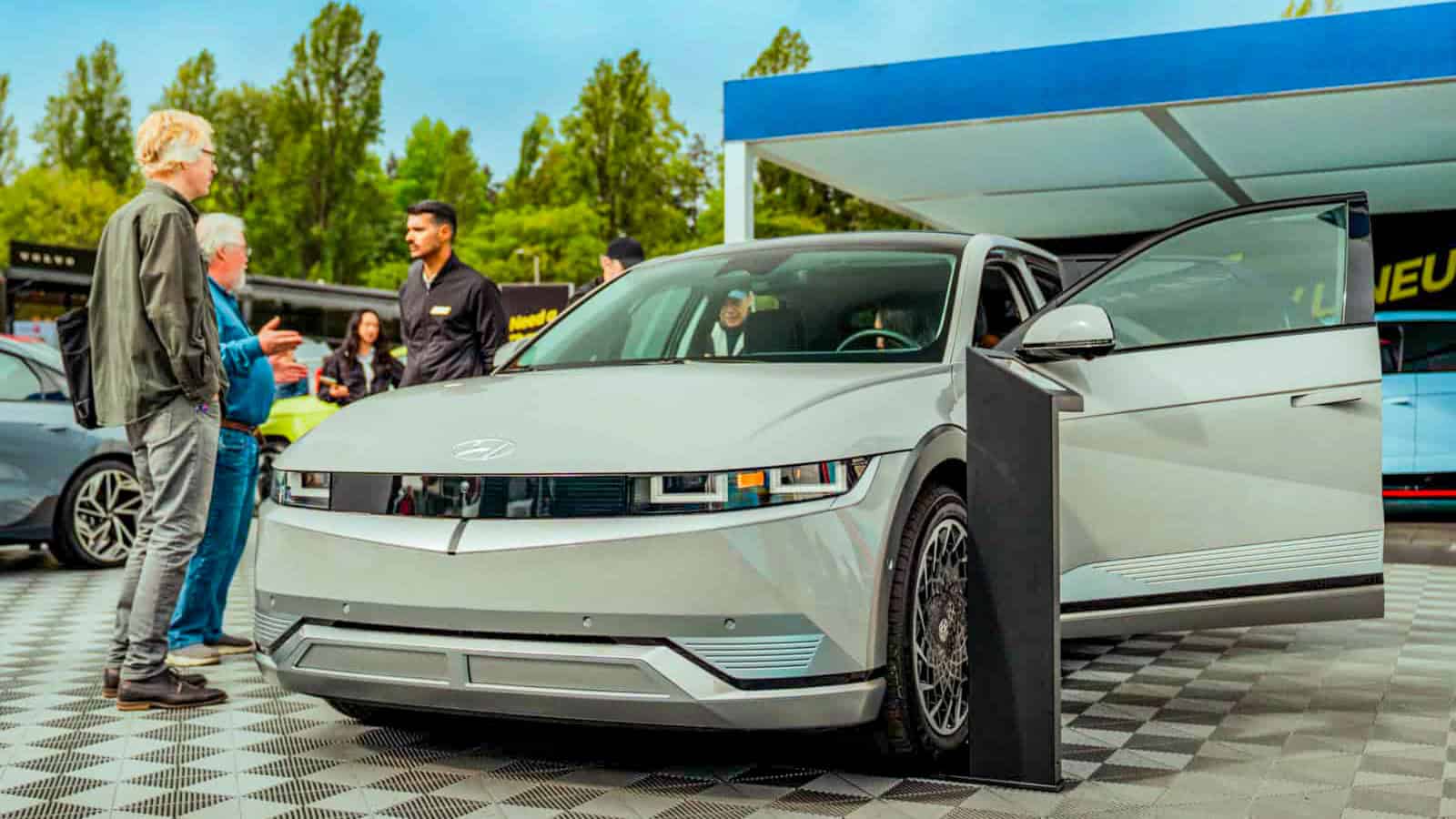
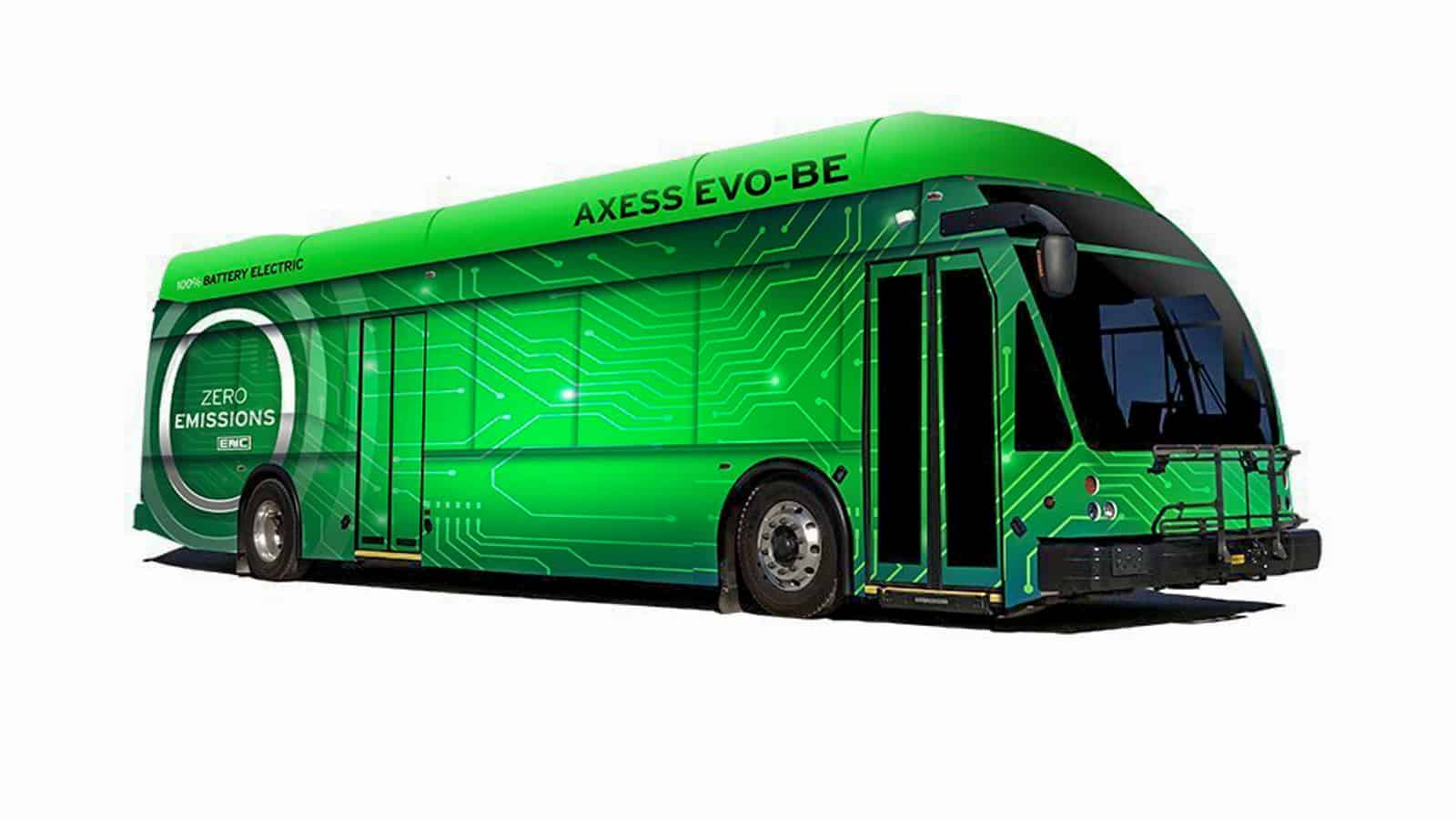
One Response